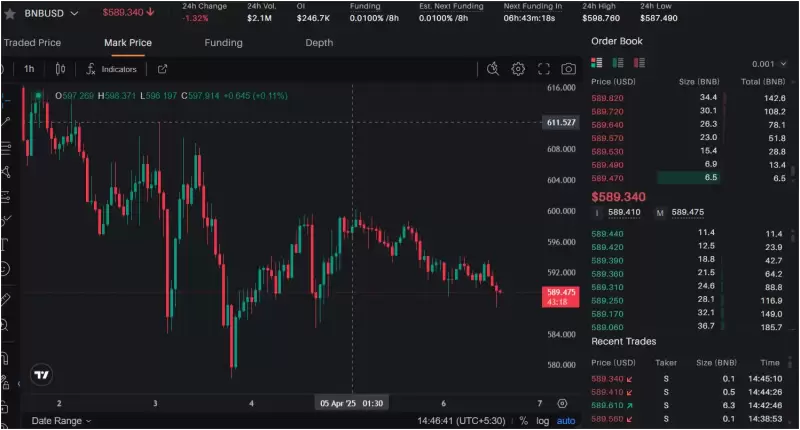 |
|
 |
|
 |
|
 |
|
 |
|
 |
|
 |
|
 |
|
 |
|
 |
|
 |
|
 |
|
 |
|
 |
|
 |
|
「ランダム」の象徴的な例であるにもかかわらず - まあ、それとサイコロが転がる - 私たちは、スキルの要素が関係しているように感じずにはいられません。特に負けたとき。

As it turns out, we tend towards the same cognitive errors with coin flips. Despite being pretty much the iconic example of “random” – well, that and dice rolls – we can’t help but feel like there’s some element of skill involved. Especially when we lose.
結局のところ、私たちはコインフリップを使用して同じ認知エラーに向かう傾向があります。 「ランダム」の象徴的な例であるにもかかわらず - まあ、それとサイコロが転がる - 私たちは、スキルの要素が関係しているように感じずにはいられません。特に負けたとき。
“In 11 studies, participants competed against another participant for a positive or negative outcome, determined by a physical or virtual coin flip,” explain Rémy Furrer and Daniel Gilbert, both psychologists at Harvard University, and Timothy Wilson, from the University of Virginia, in the introduction to a new paper this month. “The independent variable was who called heads or tails and flipped the coin: the participant or their opponent.”
「11の研究では、参加者は、物理的または仮想コインフリップによって決定された肯定的または否定的な結果を求めて別の参加者と競争しました」と、ハーバード大学の心理学者とバージニア大学のティモシーウィルソンの両方であるレイミーファーラーとダニエルギルバートは、今月の新しい論文の紹介で説明します。 「独立変数は、ヘッドまたはテールと呼ばれ、コインをひっくり返した人でした。参加者またはその対戦相手でした。」
“When participants lost the flip, we found an illusion of unfairness: They reported that the process was less fair, were less pleased with their outcome, and found the other person less likable when their opponent flipped the coin.”
「参加者がフリップを失ったとき、私たちは不公平の幻想を見つけました。彼らは、プロセスがそれほど公平ではなく、彼らの結果に満足していないと報告し、相手がコインをひっくり返したとき、他の人の好感度が低いと感じました。」
Now, evidently this is nonsense – okay, coin flips aren’t technically 50/50, but they’re near as damn it, and certainly not so predictable that the nearly 6,000 study participants involved in the 11 studies would be able to influence their outcomes at any scale. But it’s a hard notion to shake: “the illusion of unfairness appears to be a quick, intuitive process that is not easily corrected,” the trio point out.
今、これはナンセンスです - さて、コインフリップは技術的には50/50ではありませんが、それらはそれを気にしていません。そして、11の研究に関与する6,000人近くの研究参加者があらゆる規模での結果に影響を与えることができると確かに予測できません。しかし、「不公平の幻想は、簡単に修正されない迅速で直感的なプロセスのように見える」と揺るがすのは難しい概念です」とトリオは指摘します。
And here’s the thing: rather than being just a fun little quirk of the human brain, this misconception may have some pretty important real-world impacts. See, we create this illusion of unfairness because we wish the world were sensible – that we have control over our lives, and that ultimately, justice will prevail. It isn’t comfortable for us to accept that a lot of things are, basically, pretty random – so we pretend it isn’t, and just get mad when things go wrong.
そして、ここにあります:人間の脳のただの楽しい小さな癖ではなく、この誤解はいくつかの非常に重要な現実世界の影響を与えるかもしれません。私たちは世界が賢明であることを望んでいるので、私たちはこの不公平のこの幻想を作り出します。私たちは私たちの人生をコントロールし、最終的には正義が勝つことです。多くのことが基本的にかなりランダムであることを受け入れるのは快適ではありません。だから、そうではないふりをし、物事がうまくいかないときに怒るだけです。
“Our results […] speak to the philosophical literature on ‘moral luck,’ which refers to the case in which people are held morally accountable for acts that are not entirely under their control,” the authors explain in the supplemental materials to their paper. “An example is the case of two drunk drivers, one of whom strikes a pedestrian (who ran into the middle of the road) while the other makes it home without incident. Most people would judge the first driver more harshly, even though the presence or absence of pedestrians was not controllable by either driver.”
「私たちの結果[…]は、「道徳的運」に関する哲学的文献に語っています。これは、人々が完全に制御されていない行為に対して道徳的に説明責任を負う場合を指します」と著者は、補足資料で論文の補足資料で説明しています。 「例は2人の酔っ払ったドライバーの場合です。1人は歩行者(道路の真ん中に走った)にぶつかり、もう1人は無事に家に帰ります。ほとんどの人は、歩行者の存在または不在がどちらのドライバーでも制御できなかったにもかかわらず、最初のドライバーをより厳しく判断します。」
“In our studies, participants exhibited a strong version of lay moral luck. They believed that the person who flipped the coin was more responsible for a negative outcome, even though the outcome was random and uncontrollable.”
「私たちの研究では、参加者はレイの道徳的運の強力なバージョンを示しました。彼らは、コインをひっくり返した人は、結果がランダムで制御不能であったとしても、否定的な結果の責任があると信じていました。」
免責事項:info@kdj.com
提供される情報は取引に関するアドバイスではありません。 kdj.com は、この記事で提供される情報に基づいて行われた投資に対して一切の責任を負いません。暗号通貨は変動性が高いため、十分な調査を行った上で慎重に投資することを強くお勧めします。
このウェブサイトで使用されているコンテンツが著作権を侵害していると思われる場合は、直ちに当社 (info@kdj.com) までご連絡ください。速やかに削除させていただきます。
-

-

-

- PIネットワーク価格は今日得られました
- 2025-04-19 16:35:14
- PIネットワーク価格は本日、4月19日に、過去24時間で6%の増加を記録して、プレス時に0.65ドルで取引した後に獲得しました。
-

-

-

-

-

-




























































